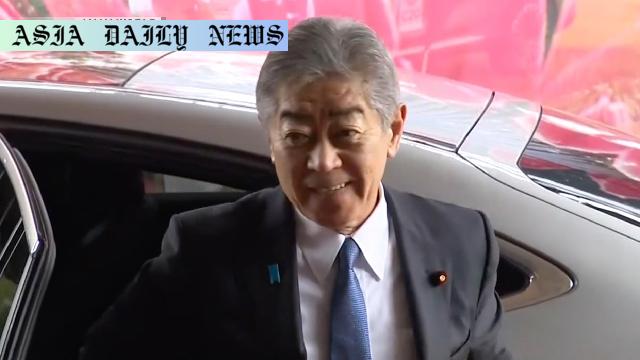Ukraine: Japan’s foreign minister pledges ongoing support for Ukraine while emphasizing the importance of global rule of law.
- Iwaya Takeshi reaffirmed Japan’s commitment to helping Ukraine recover and rebuild during the G20 meeting in South Africa.
- Concerns were raised over deepening ties between Russia and North Korea, including North Korean troops’ involvement in Ukraine.
- Japan strongly opposed unilateral attempts to alter territorial and global dynamics through force.

Japan’s Commitment to Supporting Ukraine
Japan’s foreign minister, Iwaya Takeshi, made a strong case for continued support to Ukraine during the recent G20 foreign ministers meeting held in South Africa. He emphasized the long-term commitment of Japan and its allies to Ukraine’s recovery and reconstruction. By aligning with like-minded nations, Japan aims to ensure stability and address the challenges posed by the conflict.
Efforts to End the Conflict and Promote Diplomacy
Iwaya expressed optimism that intensified diplomatic efforts could lead to an end to the war in Ukraine. Stressing the importance of dialogue, he noted that negotiations and international collaborations remain pivotal in navigating challenging circumstances.
Concerns Over Military Alliances and Rule of Law
The foreign minister voiced his concerns about increasing military cooperation between Russia and North Korea. Specifically, he criticized the involvement of North Korean soldiers fighting alongside Russian troops against Ukraine. Iwaya’s remarks underline the broader issues that threaten the global rule of law, including growing alliances that circumvent international norms.
Japan’s Stand Against Unilateral Use of Force
Japan’s firm position against unilateral attempts to change the status quo by force remains central to its foreign policy. This stance, while primarily addressing conflicts in Ukraine, also extends to regions closer to Japan, such as the East and South China Seas. Iwaya indirectly referenced China and Russia, signaling Japan’s vigilance.
The Role of G20 in Global Stability
Iwaya called for enhanced cooperation among G20 nations to address global challenges. The foreign ministers’ gathering served as an opportunity for Japan to reinforce its vision for a stable international order, while emphasizing the G20’s role in resolving conflicts and championing multilateralism.
A Broader Vision for Global Governance
Beyond the immediate concerns in Ukraine, Japan highlighted the need for countries to unite against unilateral aggression worldwide. Iwaya’s comments reflected a belief in long-term international efforts to maintain global stability and adherence to the rule of law. With its active role in the G20, Japan seeks to lead by example, encouraging nations to uphold peace and fairness.
Looking Forward
Japan’s leadership at international forums such as the G20 underscores its active diplomacy and commitment to global challenges. As Ukraine continues its battle for sovereignty, Japan is determined to be a steadfast ally, offering support not just for reconstruction, but for the broader principles of international law.



Commentary
Japan’s Leadership at a Critical Juncture
The recent statements by Japan’s foreign minister, Iwaya Takeshi, reflect a deep understanding of the geopolitical challenges that the world faces today. By calling for long-term support to Ukraine and urging nations to uphold the rule of law, Japan aligns itself with principles of peace and justice that are indispensable in navigating current global tensions.
Tackling the Russia-North Korea Alliance
Iwaya’s concerns regarding the emerging military collaboration between Russia and North Korea are indeed valid. Such alliances create seismic shifts in global power dynamics and threaten multilateral frameworks designed to foster peace. Japan’s preemptive stance on this issue highlights its foresight and commitment to countering these trends through diplomacy.
A Broader Implication Beyond Ukraine
While Japan’s immediate focus is on Ukraine, its foreign policy encapsulates deeper regional and global objectives. By drawing parallels with disputes in the East and South China Seas, Japan is sending a powerful message: unilateral aggression and attempts to rewrite norms will meet strong resistance. This proactive approach establishes Japan as a moral compass in uncertain geopolitical waters.
Conclusion and Future Outlook
As the conflict in Ukraine continues, the world looks to nations like Japan for leadership. Iwaya’s statements are a testament to the country’s resolve to act not just as a regional player, but as a global advocate for peace. The coming years will test Japan’s diplomatic strategies, but with clear priorities and a commitment to allies, it’s poised to make a lasting impact.